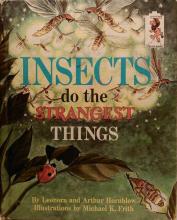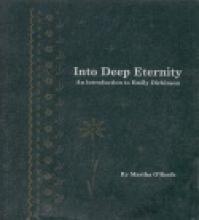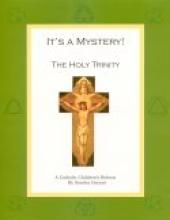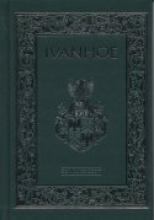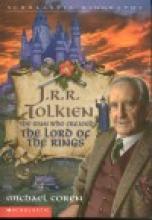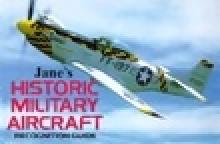No name
Insects do the Strangest Things
Interesting and informative stories of the strange but fascinating behavior of various types of insects. The pictures are of the somewhat cheezy 60s variety, but the text is quite good and written at approximately a second grade level.
Into Deep Eternity
It's a Mystery! The Holy Trinity
This extensive resource is designed to be a Catholic answer to the Vacation Bible Schools offered by various churches in the summertime. As Catholics, we recognize Sacred Scripture and Sacred Tradition as essential elements to our faith. In this specific subject of the Holy Trinity, we cannot rely only on Sacred Scripture since the Bible never explicitly mentions the dogma of the Holy Trinity.
It's a Mystery! is a well organized retreat resource that provides very simple preparation for a rewarding retreat for one or more families. The retreat could be offered as a retreat/vacation week as a break from the regular school routine, as a summer project or adjusted for one-day mini-retreat. This program includes a complete outline for a week-long retreat centering on the mystery of the Holy Trinity. Activities are generally organized into three different age groups (ages 5-7, 8-11 and 12-15). It includes general supply lists, sample invitations, overviews, song sheets, etc. as well as extensive day-by-day schedules and materials. Each day's section includes an "advanced preparation" checklist, prayers, discussion/lesson outlines, craft ideas, memory work, recipes for snacks, opening and closing suggestions and more. The lessons and memory work include quotes and readings from the Bible and the Catechism of the Catholic Church, a story of St. Parick and other prayers and hymns.
The huge appendix includes many photocopyable sheets, including: prayers, hymns, word search, maze, poems, art project templates, cooperative games, certificate of completion and lots more.
This title was donated for review by Catholic Heritage Curricula.
It's a Mystery! The Secret Garden
It's a Mystery! It's a Hit! Summer vacation will never be the same. Traditionally, Vacation Bible School curricula are either strongly Protestant or only vaguely Christian. Now there is an alternative that is not only Catholic but also lots of fun for everyone.
The Secret Garden is the third in a series of weeklong retreats for Catholic children. The program is designed for use as a parish summer program or a family-based unit study. It could be completed at any time of the year, but this one would be especially nice in warmer weather because of the garden theme and outdoor activities. This retreat introduces Catholic Marian dogma and focuses on developing the virtues, especially that of patience.
Both the teacher's guide and the student's appendix feature simple black-and-white line drawings. Don't let the non-glitzy presentation fool you; this program has excellent, solid content. Materials for the retreat leader include advertising and organizing suggestions as well as specific teaching points and background information. Points of controversy, a history of Marian dogmas, and apologetic information are presented. Fresh and original game and craft ideas that are easy to implement are described in each day's lesson. These memorable activities will appeal to both boys and girls. Indoor and outdoor games and activities keep this physically active program moving along each day.
Advance preparation is required. Materials are comparatively inexpensive to purchase, and the snack suggestions are very simple.
Daily lesson plans for 5 one-half day sessions follow a similar pattern. The day begins with prayer and continues with a lesson time, activity and game time, lesson on patience, another game or activity, work on Mary garden project, snack, a game or activity, and the closing. A party is suggested for the final day to showcase the week’s projects. Separate, but related, plans are included for preschool (ages 2-5) and elementary (ages 5-12) groups, with some suggestions for teens. When an activity is best suited for a large group, suggestions are made for a smaller group activity. We were very successful in using The Secret Garden with a group of seven children under age 12, and we are anxiously awaiting another installment in the It's a Mystery series.
Binding details: Teacher's Guide (52 pages combbound) + Loose-leaf appendix (52 pages)
Ivanhoe
The language is archaic, and is written in "Olde" English. The exciting plot more that compensates however, for the difficulties with the language. The glossary also helps explain some of the obscure references encountered in the novel.
Ivanhoe is a colourful novel, full of memorable characters- Wamba, the fool, Robin of Locksley, the enigmatic Black knight, Cedric the proud Saxon, beautiful Rowena, courageous Rebecca, Gurth, the faithful swineherd, treacherous Prince John and his Norman compatriots, and jovial Prior Aymer the not-so-holy cleric.
Ivanhoe is five hundred pages of excellent reading, filled with drama, suspence, and comedy. It's historical fiction at its finest. It's a great family read-aloud, best suited for children over ten years of age. Because of its length and style of writing, it is perhaps best suited as a family read-aloud. A highly recommended addition to your study of the Middle Ages.
P.S. The video, starring Joan Fontaine and Elizabeth Taylor, was terribly disappointing, especially after reading the novel. In this case, stick with the book alone!
Reviewer ages 10-14
J. R. R. Tolkien
J.R.R. Tolkien
Michael Coren skillfully recounts Tolkien's life - growing up as an orphan, his lasting interest in language and learning and his battle experience in World War I. All the way through he includes interesting and enlightening details - especially ones that we will recognize as relevant to Tolkien's stories. Despite the secular publisher, Tolkien's faith is discussed in some detail (and quite fairly) with Joseph Pearce's book, Tolkien: Man and Myth, (Ignatius Press) featured as a prominent source. Coren does include brief summaries of the Hobbit and the Lord of the Rings which include some real plot-spoilers for those who haven't yet read them (they also aren't the most accurate book summaries I've ever read). I would suggest reading this biography after already having read The Hobbit and the Lord of the Rings. Although intended for youth reading, the story is delightful and interesting for adults (as well as a nice quick read).
Jamberoo Road
Jane's Historic Military Aircraft: Recognition Guide
I searched for such a guide unsuccessfully for a year or more before I happened to visit the Smithsonian National Air and Space Museum in Washington D.C. where I came upon this little gem in the gift shop.
This 5" x 7 1/2" guidebook has a friendly size and tough binding for little hands. (We've had ours for over two years and it has held up very nicely.) It organizes the aircraft into five categories: World War I, Inter-War, World War II, Postwar and Helicopters. The categories are easy to find with color bars alongside each left-hand page. The book was written in the U.K. and thus does not focus on various smaller wars since World War II, but the "Postwar" and "Helicopter" segments do include some information about the Korean and Vietnam Wars. Also keep in mind that this is a guidebook for "Historic" Aircraft and thus does not include aircraft that is in use by military today.
Each two page spread includes a fact page on the lefthand side and a full-color photo of a restored or replica airplane that is in flying condition. The fact page includes a paragraph explaining the aircraft's history and features along with detailed specifications: name, type, accomodation, dimensions, weight, speed, range, first flight date, etc.
The book is a little expensive (around $25) and not an absolutely essential ingredient in the study of history, but we've found it to be a really nice supplement. It might make a great Christmas or Birthday present for your young World War II buff.

